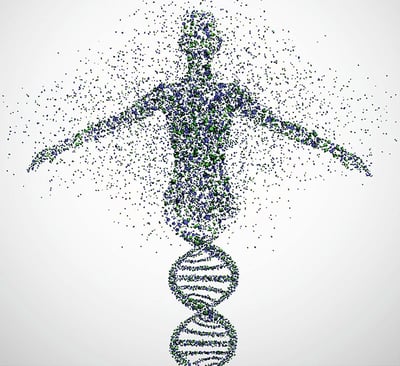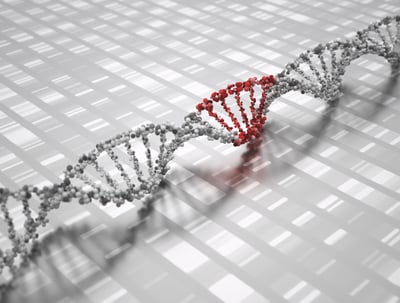FORCE's eXamining the Relevance of Articles for You (XRAY) program looks behind the headlines of cancer news to help you understand what the research means for you.
XRAY is a reliable source of hereditary cancer research-related news and information.
Learn more about the XRAY program
Categories Genetic Testing
Relevance: High


Strength of Science: High


Research Timeline: Post Approval


Study : Can population-based DNA sequencing find more people at risk for hereditary cancers?
Relevance: High


Strength of Science: High


Research Timeline: Post Approval


Most relevant for: Women over age 30
It is well documented that many BRCA mutation carriers are missed using current family history-based screening approaches. As a result, experts are beginning to call for population-based BRCA genetic testing—an organized effort to screen all women like we do for breast and cervical cancer. A recent study looked at whether a population-based genetic testing approach would better identify mutation carriers compared with current practice. (11/17/18)
Read More
Relevance: High


Strength of Science: Medium-High


Research Timeline: Post Approval


Study : Surgeon attitude impacts rate of genetic testing after a breast cancer diagnosis
Relevance: High


Strength of Science: Medium-High


Research Timeline: Post Approval


Most relevant for: Young women diagnosed with breast cancer who have not yet had genetic testing
A study in JAMA Surgery this year examined the factors that impact genetic testing after a breast cancer diagnosis. This study suggests that the attitudes of attending surgeons about genetic testing have the most impact on whether patients receive testing. (10/6/18)
Read More
Relevance: Medium-Low


Strength of Science: Medium


Research Timeline: Human Research


Study : A new method for determining whether genetic variants in BRCA1 increase cancer risk
Relevance: Medium-Low


Strength of Science: Medium


Research Timeline: Human Research


Most relevant for: People who have a Variant of Uncertain Significance in a gene associated with cancer risk.
Ever since BRCA1 was discovered, researchers have been trying to understand which of the thousands of possible DNA changes in this gene increase cancer risk and which are harmless changes. A new study in Nature reports how a cutting-edge technology called “genome editing” may be used to classify changes—known as variants of uncertain significance-in BRCA1 as harmful or harmless. Once validated, this same technology may be used to classify variants in other genes. (9/29/18)
Read More
Relevance: Medium-High


Quality of Writing: Medium-High


Article : Cancer experience in families affects decision making
Relevance: Medium-High


Quality of Writing: Medium-High


Most relevant for: Women with an inherited mutation linked to increased risk for cancer
Women with inherited mutations in genes that increase breast and ovarian cancer risk have an additional challenge: coping with how those mutations impact their families and how a family member’s cancer experience can shape their own perception. In a recent U.S. News and World Report article, Elaine Howley explores how a woman's decisions about healthcare, cancer prevention and treatment are affected by experience with cancer in the family. (9/25/18)
Read More
Relevance: Medium-High


Strength of Science: High


Research Timeline: Post Approval


Study : Hormone therapy and breast cancer risk after ovary removal in women with a BRCA1 mutation
Relevance: Medium-High


Strength of Science: High


Research Timeline: Post Approval


Most relevant for: Women with BRCA1 mutations who have had risk-reducing ovary removal and have never been diagnosed with breast cancer
Does hormone therapy (HT) alter the risk of breast cancer for woman carrying a BRCA1 mutation who have never been diagnosed with cancer? In this study, researchers showed that among women with BRCA1 mutations, HT use did not increase breast cancer rates for 10 years after ovary removal. More women taking combined estrogen plus progesterone developed breast cancer compared to those taking estrogen only, though this difference was not statistically significant. (9/7/18)

Relevance: Medium-High


Strength of Science: Medium-High


Research Timeline: Post Approval


Study : Study identifies genes associated with risk of triple-negative breast cancer
Relevance: Medium-High


Strength of Science: Medium-High


Research Timeline: Post Approval


Most relevant for: People diagnosed with triple-negative breast cancer
Panel testing can identify women who are at increased risk for breast cancer. However, those at risk for triple-negative breast cancer cannot easily be identified because other than BRCA1, genes that increase the risk for triple-negative breast cancer are unknown. A new study uses panel testing to identify which genes increase the risk for triple-negative breast cancer. (8/23/18)
Read More
Relevance: Medium


Strength of Science: Medium


Research Timeline: Human Research


Study : Evaluation of some direct-to-consumer genetic testing reveals inaccuracies and misinterpretations
Relevance: Medium


Strength of Science: Medium


Research Timeline: Human Research


Most relevant for: People who are considering or have had direct-to-consumer testing
A clinical genetic testing laboratory examined results from direct-to-consumer genetic testing ordered directly by patients. They found many instances of false positives—reported mutations that were not actually present—and in some cases, reports of variants that "increased risk," but were actually benign. This study emphasized the importance of involving genetics experts in the interpretation of genetic test results. (6/28/18)
Read More
Relevance: Medium-High


Strength of Science: Medium-High


Research Timeline: Human Research


Study : Mutations in Lynch syndrome genes MSH6 and PMS2 may be associated with breast cancer
Relevance: Medium-High


Strength of Science: Medium-High


Research Timeline: Human Research


Most relevant for: Women with an MSH6 or PMS2 mutation
Some women with mutations in MSH6 and PMS2, two Lynch syndrome genes, may have a modest (2 to 3-fold) increased risk for breast cancer. (6/14/18 updated 09/25/19)
Read More
Article : The right not to know when not knowing is dangerous
Most relevant for: People with Icelandic heritage
Healthcare providers are bound by the guiding principle of doing no harm. But how does this concept apply to their patients who have not consented to genetic testing or who do not want to know their results? In that case, is providing test results more harmful or not? Anna Clausen explores these issues in the context of breast cancer gene testing in her Global Health Now article “The Right Not to Know: When Ignorance is Bliss but Deadly.” (4/20/18)
Read More
Relevance: Medium-High


Strength of Science: Medium


Study : Take your time, follow your heart: strategies for communication about family planning
Relevance: Medium-High


Strength of Science: Medium


Most relevant for: Young high risk women
When a woman is newly diagnosed with a BRCA mutation, she faces many risk management decisions. Although many of these decisions impact family planning, little guidance is available on how to communicate this information. This study examines female previvors’ advice on effective strategies for discussing family planning decisions. (03/28/18)
Read More